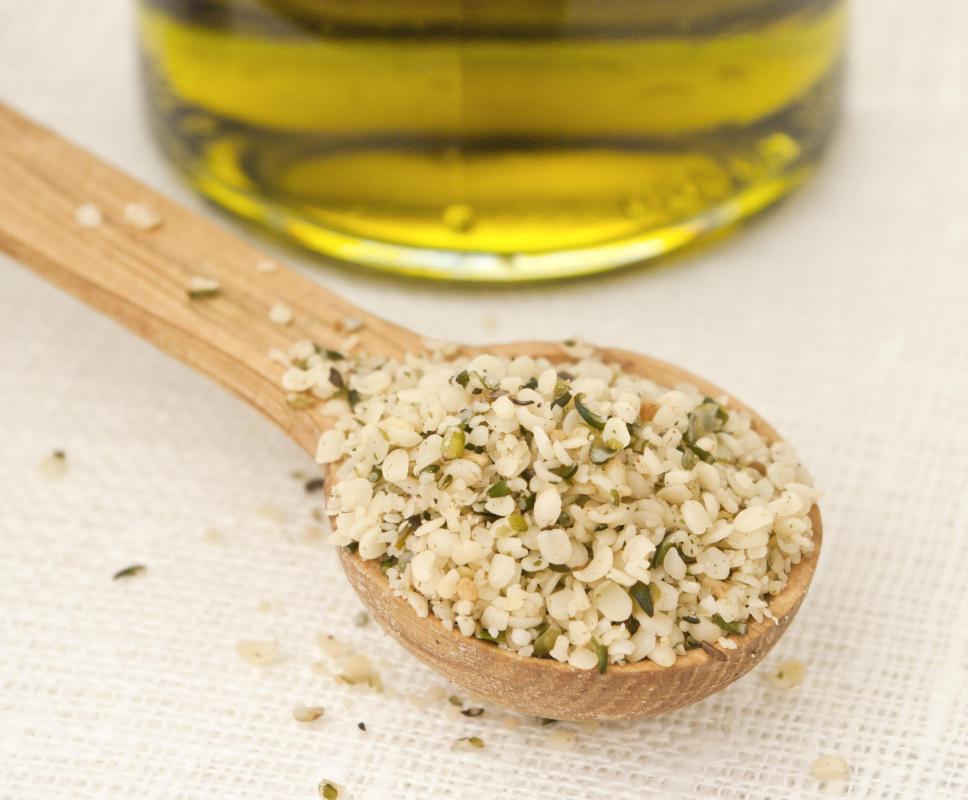At WiseGEEK, we're committed to delivering accurate, trustworthy information. Our expert-authored content is rigorously fact-checked and sourced from credible authorities. Discover how we uphold the highest standards in providing you with reliable knowledge.
What Is Alpha-Linolenic Acid?
First discovered in 1942, alpha-linolenic acid (LNA) is found naturally in seed oils of the chia, flax, canola, shiso, hemp and sea buckthorn plants. Not to be confused with alpha-lipoic acid, a sulfo-organic compound also used in alternative medicine, alpha-linolenic acid is a member of a class of nutrients known as omega-3 essential fatty acids. Although research conducted during the early 2000s suggests that increasing dietary levels of alpha-linolenic acid may reduce the risk of ischemia, epilepsy, and cardiovascular disease, the body's ability to convert LNA into other essential fatty acids is limited as compared to the omega-3 fatty acids derived from fish.
Structurally, the alpha-linolenic acid molecule is an 18 carbon carboxylic acid with three double bonds, making it a polyunsaturated fatty acid chain. Since polyunsaturated oils have a considerably shorter shelf life than saturated fats, manufacturers wishing to use oils that contain NLA in their products often choose to convert them into trans-fats. Soybean oil, which contains as much as eight percent NLA naturally, is frequently partially hydrogenated for this reason. The process of hydrogenating this omega-3 fatty acid removes any health benefits it may have provided, and may in fact cause the fat to become harmful. Due to an increasing awareness of the negative impact of trans-fats on human health, attempts are being made to develop new strains of soybean that are low in alpha linolenic-acid.

Acquiring therapeutically active levels of NLA directly from seeds and seed oils is difficult. Even the seeds of the chia and kiwi fruit plants, the richest natural sources of alpha-linolenic acid, also contain significant amounts of common omega-6 fatty acids. These fatty acids compete with NLA at sites within the gut, interfering with its absorption.

While some research suggests that small to moderate amounts of NLA in the diet can convey cardioprotective benefits, other studies indicate that it may be necessary to use extracts of alpha-linolenic acid as a dietary supplement to achieve levels large enough to be effective. While the most positive studies of the use of alpha-linolenic acid have found only modest benefits, some have found no benefit at all. Omega-3 fatty acids, however, are considered to be essential nutrients, because the body is unable to synthesize them and must instead derive them from dietary sources. Deficiencies in omega-3 fatty acids can cause mood swings, depression, dry skin, fatigue, and cognitive deficiencies as well as increase the risk of developing cardiovascular disease.
AS FEATURED ON:
AS FEATURED ON:















Discuss this Article
Post your comments